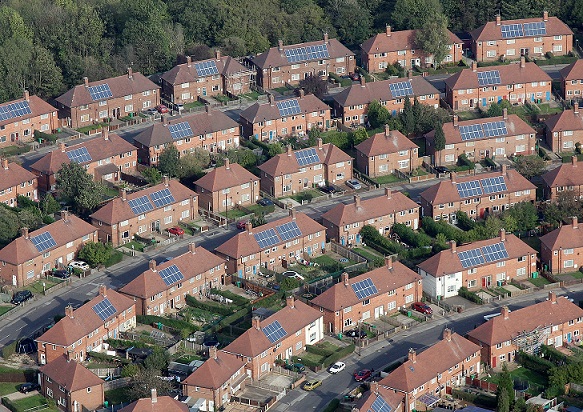
As of 1 February 2024, the UK government has removed the VAT charge for domestic battery energy storage systems (BESS) under any circumstance.
The policy change, initially announced in December 2023, followed a lengthy campaign by both Solar Energy UK and parliamentarians to include retrofitted BESS in the 20% tax exemption.
As a result of the Spring Statement 2022, energy-saving domestic equipment such as heat pumps and roof-mounted solar have been exempt from the VAT, alongside BESS if it is installed with other energy-saving materials such as solar.
The Value Added Tax (Installation of Energy-Saving Materials) Order 2024 applies to BESS which are retrofitted to an existing installation and will continue to include them until 31 March 2027.
The law also extends the same exemption to water-source heat pumps and smart diverters, which can be used to transfer solar power into hot water tanks when generation exceeds consumption.
More than 1.2 million solar-powered homes are now able to benefit from the tax cut, alongside the inherent advantages of a BESS as a solar power feature, storing power after the sun sets and significantly increasing financial savings on energy bills.
If connected to appropriate systems, they can also help relieve grid stress by automatically engaging in saving sessions, where people are paid to cut their electricity consumption.
Chris Hewett, chief executive of Solar Energy UK, said: “The cut in VAT is exceedingly welcome and we have every expectation that it will increase demand for home battery energy storage. By allowing solar power to be used after dark, it can double the savings offered by home solar power systems. There has never been a better time to upgrade than today.”
Nationwide efforts for popularisation of BESS
Domestic BESS installations are massively important, as the deployment of larger-scale projects can be indicative of the national attitude towards green technology.
Ridge Clean Energy provides a key example of solar and BESS coming hand-in-hand, having received planning approval for its 50MW solar and storage project in Nottinghamshire in October 2023.
The project, named Fair Oaks Renewable Energy Park, will be built on land to the south-west of the village of Ruddington and will combine 49.9MW of installed photovoltaic (PV) capacity with a similar-sized BESS.
The following month (November 2023) saw developer Zenobē open its 50MW/100MWh BESS in Wishaw, North Lanarkshire, Scotland.
The company started construction of the Wishaw asset in April 2022, with the intention that it will also be used as part of National Grid ESO’s Constraints Management pathfinder, helping to identify and tackle challenges around transmission capacity in the region.
Most recently, in December 2023, National Grid plugged in the 100MW/100MWh battery energy storage system to its 400kV Richborough substation, having acquired the project from Pacific Green in July 2023.
New projects due to connect to the grid later in 2024 include Cambridge Power’s 60MW BESS in Redcote Lane, Leeds. This site going live will mark the company’s third successful brownfield rejuvenation project, including a 29MW battery storage project in Glasgow and a 50MW Newcastle Upon Tyne BESS.

